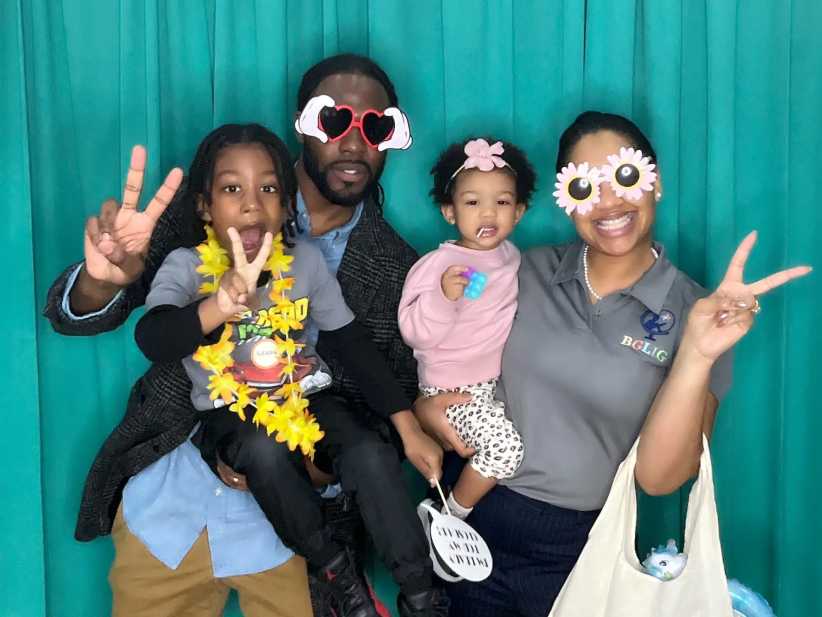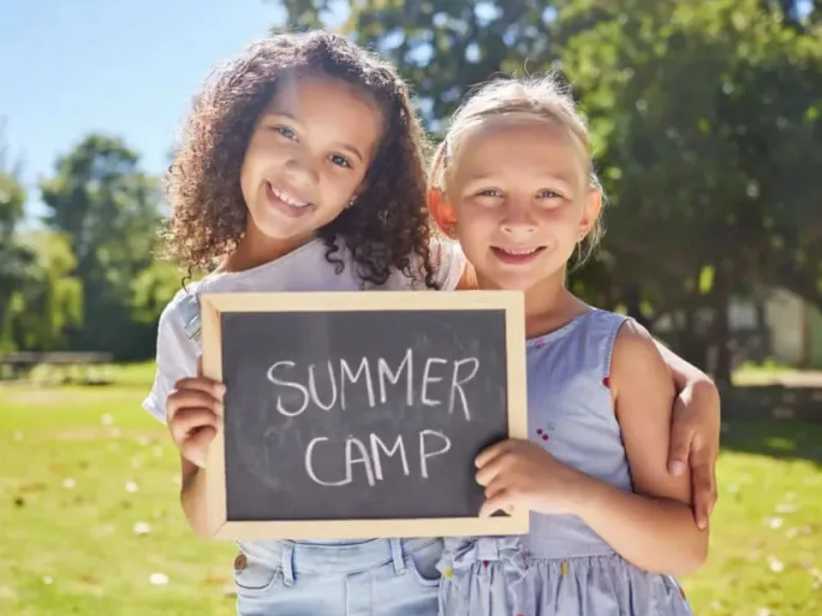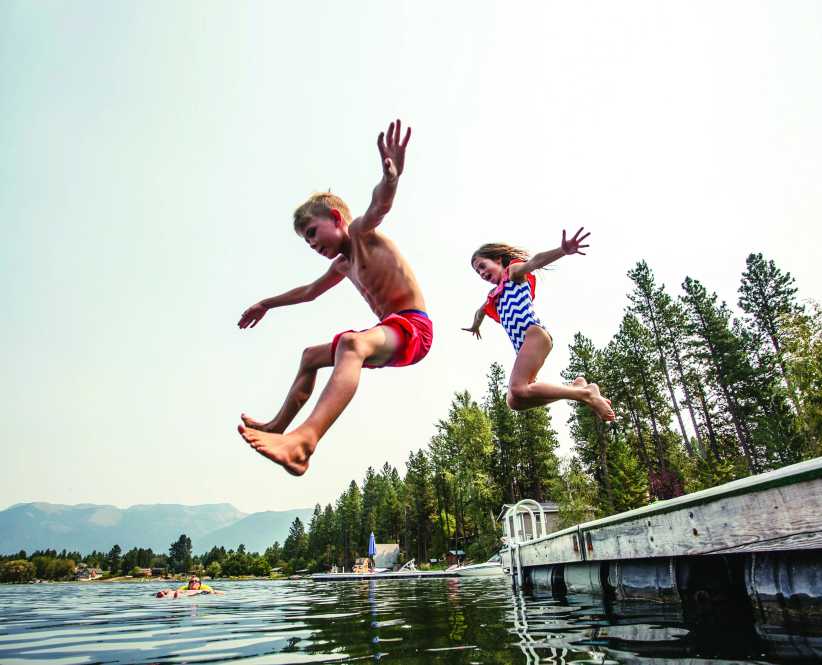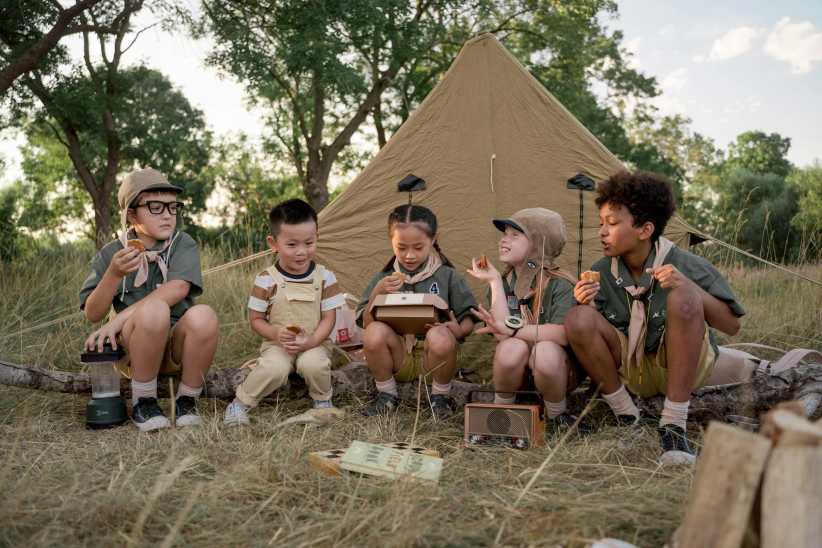
Besides swimming, playing sports, singing songs, and doing arts and crafts, camp is one of the best environments for your child to gain important life skills, including soft skills. Soft skills are the interpersonal skills that you need to succeed in various life situations and the workplace. According to research by the Partnership for 21st Century Learning, an organization comprised of leaders in the business community, education field and policy makers including Apple, Microsoft, Cisco Systems, and the U.S. Department of Education, soft skills are what 21st Century employers are looking for in future employees. Camp is a unique environment that provides numerous opportunities each day to hone these skills such as communication, problem solving, teamwork, creativity, social skills, flexibility and so many more. “When you create an environment where children feel safe and included and you appreciate children for who they are, the magic starts to happen,” says Roberta Katz, owner and director of Deer Mountain Day Camp in Rockland County. “Camp allows children to be their true selves which allows for growth opportunities.”
Adam Weinstein, executive director of Berkshire Hills Eisenberg, a co-ed Jewish overnight camp in the Berkshires comments: “The important skills campers walk away with after a summer at camp isn’t archery or soccer abilities. The real and meaningful skills they will gain are things like good communication and problem solving skills, which they will carry with them through their lifetime.”
Camp provides so many opportunities for face to face communication, which is often hard to achieve in today’s technologically connected world. “At camp, there are no phones so you have to talk to people and be present, unlike texting when it’s easy to cut off the conversation and move on. During the camp day, maybe there is someone whose feelings get hurt but that is part of life and we are able to help children work through it and make it a teachable moment,” Katz comments. “As children grow, they will be in the college or the work environment and they might not like someone but if they went to camp, they learned about tolerance and respect for others. These are important skills that are an essential part of camp that you don’t get in other parts of life.” At Berkshire Hills Eisenberg, cabin chat is part of every evening. “There is a topic each day that we ask the campers. It could be something silly like: ‘If you have a super power what would it be?’ Or a serious topic such as: ‘What is an important quality to have in a friend?’” Weinstein says. “Having this routine every night allows children to practice using their voices and communicate with each other. They delve into interesting topics and they get to share with each other, with no wrong answers.”
Leadership is an important skill developed at camp. “Camp allows for small moments of leadership each day. It’s one of the only places where a 6-year-old can be a leader,” says Genna Singer, director of camps, JCC Manhattan. “They have the chance to be in front of the lunchroom leading a cheer or rally their whole group to sing a song. Young campers also see their junior counselors being role models to campers and this is a leadership position that feels like something they can achieve because it’s a young person who is only a few years older than they are. Children think that is someone I can aspire to be.”
[gravityform id=”17″ title=”false” description=”false” ajax=”true”]
With school focused on academics, children often don’t get the chance to be creative. Creativity is a big part of the camp experience. “Campers are exposed to new activities and given the chance to test the waters on skills they don’t have time to do or wouldn’t choose to participate in during the school year. A child who doesn’t know they are creative are faced with the opportunity to do ceramics and jewelry making which may at first feel challenging but then after some time, they think ‘oh I can do this and I like it.’ If a parent asked their child if he or she would like to do this as an afterschool activity, the answer might be ‘no’ but camp exposes children to so many activities like these that they don’t even know they like and are good at,” Singer explains.
Team work happens throughout the camp day, whether on the sports field or in group activities. “Camp allows children to live together with a group of people that is different from themselves 24 hours a day/seven days a week for 2-8 weeks at a time. This is an incredible learning experience for children,” Weinstein says. “Even if a group clicks very well, there will be relationship dynamics to work out and it’s so important in life to learn how to manage these different situations. People often think of teamwork in a game but at a good resident camp, the whole summer is a team work experience.”
Katz notes: “When speaking with parents, they always say how we have so many amazing activities and while we do, it’s not what camp is truly about. Providing a safe, caring community where a child can be part of a group and be supported is the essential part of what we do for children in the long term.” Weinstein adds: “Because of technology, children have few opportunities to navigate the world without their parents. The great thing about camp is it gives children the chance to manage relationships and problem solve independently. Camp is increasingly more important today than ever before for children to learn these important life skills.”





























